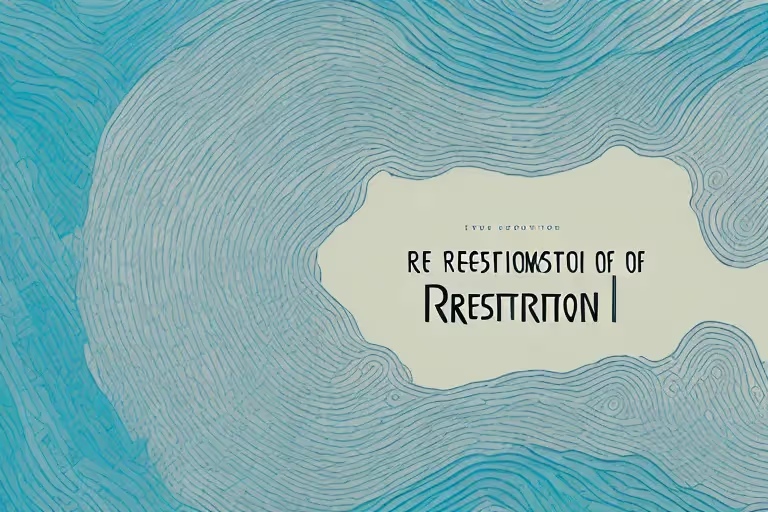Tapping meditation has gained significant attention in recent years for its potential therapeutic benefits. This unique practice combines elements of ancient healing techniques with modern psychology, creating a powerful tool for managing physical and emotional well-being. By understanding the concept, science, and techniques behind tapping meditation, individuals can harness its benefits and promote a healthier, more balanced life. In this article, we will delve into the origins, principles, and impact of tapping meditation, bust common myths, and explore its potential for personal growth and development.
The Concept of Tapping Meditation
Origins and Development of Tapping Meditation:
Tapping meditation has its roots in ancient practices such as acupuncture and acupressure, which aim to balance the body's energy flow. Acupuncture, originating in ancient China, involves the insertion of thin needles into specific points on the body to stimulate the flow of energy. Acupressure, on the other hand, involves applying pressure to these points using fingers, palms, or special tools.
However, tapping meditation specifically focuses on using gentle finger taps on specific acupressure points to address emotional and physical concerns. The technique was refined and popularized by Psychological Flexibility expert and founder of Emotional Freedom Techniques (EFT), Gary Craig. Craig recognized the potential of combining the principles of acupressure with psychological approaches to create a powerful tool for emotional healing.
Key Principles of Tapping Meditation:
At its core, tapping meditation operates on the belief that unresolved emotional issues can lead to physical ailments and that by tapping on specific meridian points, individuals can release emotional energy blockages. Meridians are energy pathways in the body, and according to traditional Chinese medicine, when these pathways are blocked, it can result in physical and emotional imbalances.
Tapping meditation combines elements of cognitive therapy, exposure therapy, and acupressure to address negative emotions and promote emotional healing. Cognitive therapy involves identifying and challenging negative thought patterns, while exposure therapy helps individuals confront their fears or traumatic experiences in a controlled and safe environment. By incorporating these principles into tapping meditation, individuals can work through their emotional issues while simultaneously stimulating the body's energy flow.
During a tapping meditation session, individuals typically focus on a specific issue or emotion that they want to address. They begin by identifying the intensity of the emotion on a scale from 0 to 10, with 10 being the highest. Then, they use their fingertips to gently tap on specific acupressure points while repeating affirmations or statements related to the issue at hand. The tapping sequence usually involves tapping on the side of the hand, eyebrow, side of the eye, under the eye, under the nose, chin, collarbone, and under the arm.
As individuals tap on these points, they may experience a release of emotional tension, a shift in perspective, or a decrease in the intensity of the emotion. This process helps to rewire the brain and create new neural pathways, allowing for greater emotional resilience and well-being.
Over the years, tapping meditation has gained recognition and acceptance in the field of psychology and holistic healing. It is now widely used as a self-help tool to address a variety of emotional issues, including anxiety, stress, phobias, trauma, and even physical pain.
By combining ancient wisdom with modern psychological techniques, tapping meditation offers a unique and effective approach to emotional healing and personal growth.
The Therapeutic Impact of Tapping Meditation
Physical Health Benefits:
The mind and body are deeply interconnected, and tapping meditation recognizes this relationship. Through regular practice, individuals have reported improvement in physical symptoms such as chronic pain, migraines, and even autoimmune disorders. Research suggests that the relaxation response elicited by tapping may help regulate the body's stress hormones, leading to overall improvements in physical health.
Furthermore, tapping meditation has been found to have a positive impact on the immune system. By reducing stress and promoting relaxation, tapping may enhance the body's ability to fight off infections and diseases. This can result in fewer sick days, increased energy levels, and a stronger overall immune system.
Mental and Emotional Health Benefits:
Tapping meditation has shown promising results in the realm of mental and emotional well-being. Studies suggest that tapping can reduce anxiety, depression, and stress levels. It may also enhance self-esteem, promote emotional resilience, and provide individuals with a greater sense of control over their emotions.
Moreover, tapping meditation has been found to have a profound effect on the brain. Research has shown that tapping can stimulate the release of endorphins, which are natural mood-enhancing chemicals. This can lead to an improved mood, increased feelings of happiness, and a greater sense of overall well-being.
Additionally, tapping meditation allows individuals to address and release negative emotions. By tapping on specific acupressure points while focusing on negative emotions, individuals can effectively process and release these emotions, leading to a sense of emotional freedom and relief. This practice also opens the door for individuals to cultivate positive emotions such as gratitude and compassion.
In conclusion, tapping meditation offers a wide range of benefits for both physical and mental health. By recognizing the mind-body connection and utilizing specific acupressure points, individuals can experience improvements in physical symptoms, reduced stress levels, enhanced emotional well-being, and an overall sense of balance and harmony.
The Science Behind Tapping Meditation
Understanding the Mind-Body Connection:
Scientific studies have shown that tapping on specific acupressure points can activate the body's relaxation response, which counteracts the stress response. This response triggers the release of endorphins, serotonin, and other feel-good chemicals in the brain, leading to a sense of calm and well-being. Additionally, tapping may help deactivate the amygdala, a part of the brain responsible for the fight-or-flight response, reducing anxiety and promoting emotional balance. Recent data shows that tapping affects the brain's electroencephalogram (EEG) patterns, supporting its therapeutic impact.
The Role of Energy Channels in Tapping Meditation:
Tapping meditation is based on the concept of meridians, energy channels that run throughout the body. These meridians are believed to be connected to specific organs, emotions, and physical sensations. By tapping on specific acupressure points, practitioners can access and release blocked energy, allowing for the free flow of energy and the restoration of balance. However, it is important to note that the scientific community is still exploring and attempting to understand this phenomenon.
Techniques of Tapping Meditation
Basic Steps for Beginners:
- Identify the issue: Begin by acknowledging the problem or emotional distress you wish to address.
- Rate the intensity: On a scale from 0 to 10, rate the intensity of your emotional distress.
- Create an affirmation: Formulate a positive statement that counteracts the negative belief associated with the issue.
- Tapping sequence: Follow a specific tapping sequence, using your fingertips to tap on the designated acupressure points while repeating your affirmation.
- Reassess intensity: After completing a round of tapping, reassess the intensity of the emotional distress.
- Repeat as necessary: If the intensity remains, repeat the tapping sequence until you achieve a desired level of relief.
Advanced Techniques for Experienced Practitioners:
- Working with a practitioner: Seek the guidance of an experienced tapping meditation practitioner who can help you address complex issues and guide your practice to deeper levels.
- Using affirmations: Experiment with creating personalized affirmations that resonate with your specific concerns and goals.
- Exploring variations: Explore different tapping techniques, such as tapping with your hands, using verbal cues, or combining tapping with breathwork or visualization.
- Integrating tapping into a holistic routine: Consider incorporating tapping meditation into your daily routine alongside practices such as mindfulness, yoga, or journaling to enhance its benefits.
Common Misconceptions About Tapping Meditation
Debunking Myths About Tapping Meditation:
Tapping meditation has faced its fair share of skepticism and misconceptions. One common myth is that tapping is a placebo effect without any scientific basis. However, numerous studies have demonstrated its effectiveness in reducing stress and relieving emotional distress. Additionally, some may believe that tapping is solely a relaxation technique, unaware of its potential impact on physical health and personal growth.
Addressing Skepticism and Doubts:
Despite that, it is important to approach tapping meditation with an open mind. As with any healing practice, individual experiences may vary, and it may not be a one-size-fits-all solution for everyone. However, exploring tapping meditation and experiencing its benefits firsthand can provide valuable insights and an opportunity for personal growth.
As you embark on your tapping meditation journey, consider incorporating the Aura Health App into your practice. With its guided meditation and tapping sessions, the app can help you deepen your understanding and maximize the therapeutic impact of tapping. Explore the multitude of features and resources Aura offers to support your overall well-being.
Aura is Your All In One App for Meditation, Mindfulness Wellbeing
Find peace every day with one app for your whole well-being. There is no one-size-fits-all solution to mental well-being. Aura is the first all-in-one wellness app that learns how to best help you. Discover an endless library of expert-created tracks for your well-being, all taught by the world’s best coaches, therapists, and storytellers. With Aura's personalized recommendations, you can find peace every morning, day and night.



.webp)






.avif)

%20(1).avif)


.avif)
.avif)
.webp)


.avif)


















































































































.avif)

















.svg)









